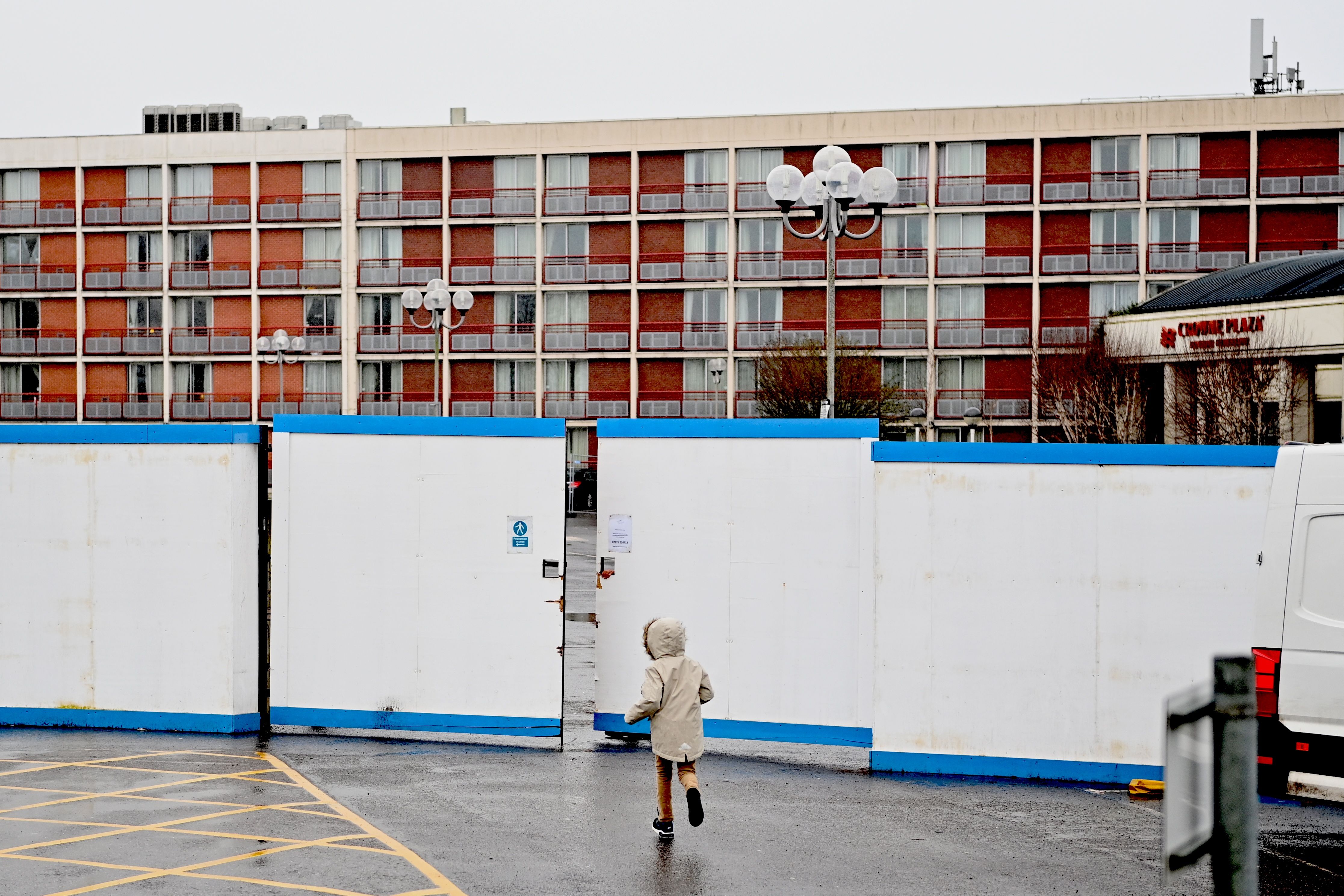Why closing asylum seeker hotels could end in yet another farce
Plans to cut the number of hotels housing asylum seekers and shift the issue onto local councils risk inflaming the issue in a number of ways, explains Andrew Grice – and then there’s the nonsense of those made homeless being rehoused in the very same places they have just been kicked out of


Ministers are to start winding down the use of hotels for asylum seekers by the end of this week, saying 50 of the 400 hotels will no longer accommodate migrants by 31 January, with another 50 contracts terminated by the end of March. It follows pressure from Conservative MPs in some of the areas where hotels are used. But, in a bizarre twist, local authorities have warned that some migrants who leave the hotels may end up homeless, leaving councils with no alternative but to house them… in the very same hotels.
Why does the government want to stop using hotels?
Apart from responding to concern about community tensions, it wants to reduce the £8m-a-day bill for the 50,000 or so migrants currently housed in requisitioned hotels. Robert Jenrick, the immigration minister, told the Commons the practice was “one of the most damaging manifestations” of the impact of illegal migration on communities. He denied reports that his priority will be to stop using hotels in key election battleground seats such as Tory-held marginals in an attempt to reduce voters’ concerns about Rishi Sunak’s failure to “stop the boats”. Labour points out that, on the government’s own figures, it would cut the number of migrants in hotels by “a paltry 12 per cent”.
How would the number of migrants needing hotels come down?
The Home Office has forced migrants to share rooms, avoiding the need to use a further 72 hotels. It is trying alternative accommodation, such as the Bibby Stockholm barge moored in Portland, Dorset, though that currently holds only 50 because of a two-month delay following the detection of Legionella bacteria in the water supply. The Home Office is also turning to disused military bases and the former Northeye Prison in East Sussex, which it bought back for £15m only a year after it was sold to developers for £6m. The number of migrants crossing the Channel has dropped from 37,575 in the year to October 2022 to 26,501 in the same period this year, mostly due to a returns agreement with Albania. The backlog of asylum cases is also finally coming down.
What will happen to migrants who have to leave hotels?
Local authorities are worried that the move – coupled with the arrival of more Afghan refugees and the end of many British homestay agreements for Ukrainian families – could leave up to 60,000 people homeless by the end of this year. They would become the responsibility of local councils.
Shaun Davies, Labour chair of the Local Government Association (LCA), said: “The deep irony is that it might be the same hotels that the government are looking to close down for their purposes are the very same hotels that local authorities will have to stand up and fund for temporary accommodation.” He suggested ministers were trying to pass the bill on to councils, even though many are already under financial pressure.
Enver Solomon, chief executive of the Refugee Council, said: “In closing hotels, we are now seeing a homelessness crisis developing with newly recognised refugees being given as little as seven days before they are evicted from accommodation.” The government insists they get 28 days’ notice.
Does this mean Mr Sunak’s ‘stop the boats’ policy is working?
Not yet. The government’s biggest challenge is its controversial plan to send illegal migrants to Rwanda, which ministers claim will deter them from crossing the English Channel. The Supreme Court’s ruling on the scheme is due in December and ministers hope the first flights will depart in February. But they have suffered a string of disappointments over the plan in the past.



Join our commenting forum
Join thought-provoking conversations, follow other Independent readers and see their replies
Comments